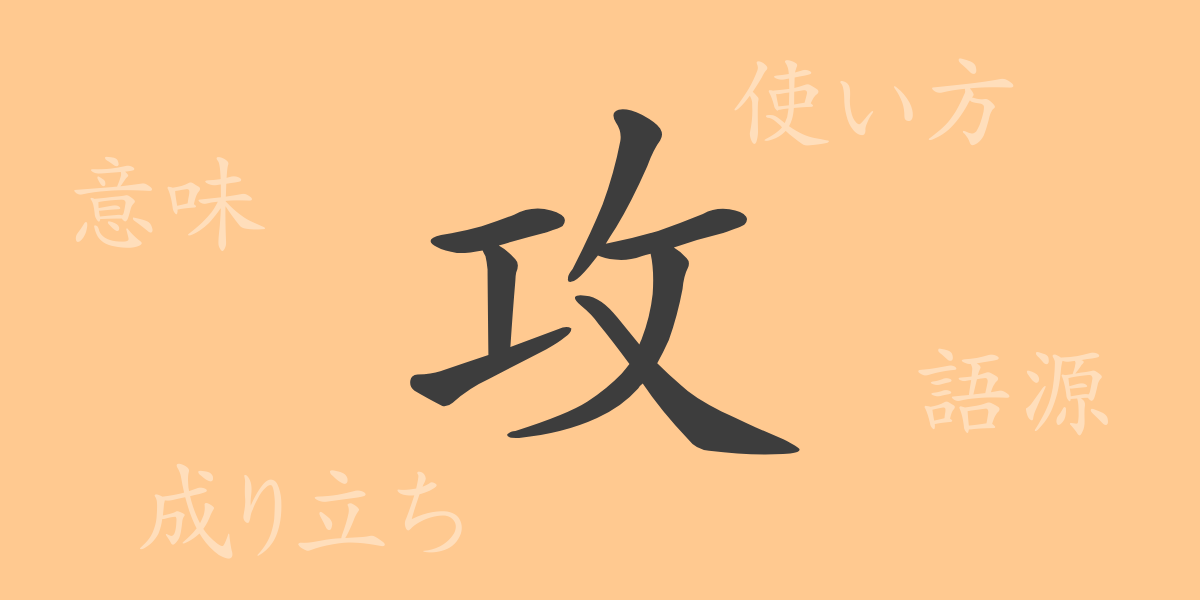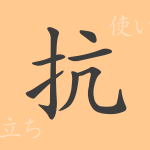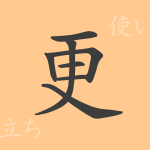Characters are not just symbols. They carry meanings deeply rooted in culture, history, and our daily lives. The Japanese kanji “攻(こう)” is one such character, used in various fields from ancient times to the present day. This article delves into the origins, meanings, and usage of “攻(こう)”, exploring idioms and phrases to reveal the rich world this single character represents.
Origins of 攻(こう)
The kanji “攻(こう)” originated in ancient China, symbolically representing the act of attacking a fortress. The original form depicted tools or weapons used to break through walls from the outside. Over time, its shape became more abstract, evolving into the current form of “攻(こう)”. This character came to signify proactive actions such as attacking or overcoming obstacles.
Meanings and Usage of 攻(こう)
“攻(こう)” primarily means “to attack” but has various applications. For instance, in sports, it refers to offensive actions against the opposing team, as in “攻撃(こうげき)” (attack). It is also used in contexts like “攻略(こうりゃく)” (strategy) to denote actively tackling problems. In academic and professional settings, “攻める(せめる)” signifies the approach of confronting difficult tasks proactively.
Readings, Stroke Count, and Radical of 攻(こう)
Here are the basic details about the kanji “攻(こう)”:
- Readings: The on-yomi (Chinese reading) is “コウ(こう)”, and the kun-yomi (Japanese reading) is “せ(める)”.
- Stroke Count: 7 strokes
- Radical: The radical is 力(ちからへん, power).
Idioms, Phrases, and Proverbs Using 攻(こう)
There are numerous idioms and phrases that include “攻(こう)”. Here are some examples:
- 攻防戦(こうぼうせん): A term meaning a battle of attack and defense, used in contexts such as sports, business, and warfare to describe intense competition.
- 攻勢を強める(こうせいをつよめる): An expression meaning to intensify an offensive, often used to describe a stance of trying to gain an advantage in competitions or debates.
- 攻めの姿勢(せめのしせい): A proactive approach to tackling tasks, often contrasted with a passive stance.
Conclusion on 攻(こう)
The kanji “攻(こう)” symbolizes a strong will to proactively overcome challenges, as indicated by its form. As a common kanji in Japanese, it is used in various contexts such as sports, business, and academics, playing a significant role in our lives. The importance of attacking and advancing, conveyed by “攻(こう)”, offers a powerful message encouraging us to keep moving forward.

























